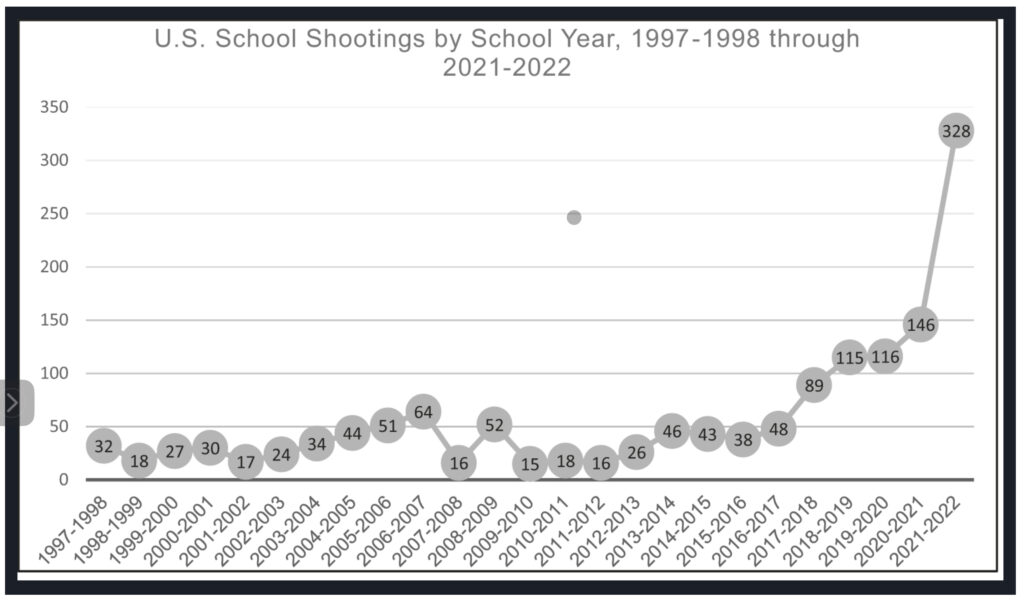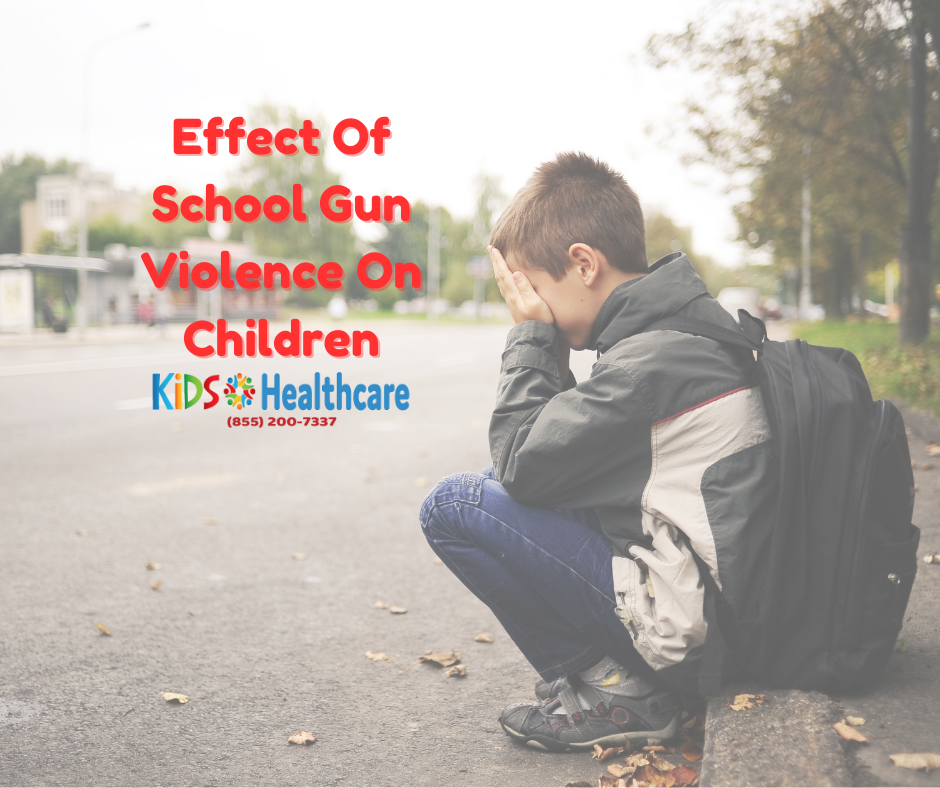The alarming rise in school shootings over the past 25 years has had profound implications on the mental health of children and adolescents in the United States. Each mass school shooting seems to be more deadly than the last. Exposure to such traumatic events, whether directly or indirectly, has been linked to increased rates of anxiety, depression, and post-traumatic stress disorder (PTSD) among youth.

Impact on Mental Health:
- Anxiety and Depression: Children exposed to gun violence, including school shootings, are at a heightened risk for developing major depression and PTSD, which can lead to an increased risk of suicide. Active shooter drills in school are valuable but validates a childs feelings of anxiety about school safety. School Resource Officers (SRO) do NOT reduced the risk of school shootings while causing children to have negative encounters with law enforcement at earlier ages. These interventions do not make children feel safe. In fact, they tend to worsen anxiety and depression.
- Post-Traumatic Stress Disorder (PTSD): The surviving children from the Sandy Hook mass school shooting graduated this past school year. They have vivid memories of their traumatic event and suffer survivors guilt. Experiencing or witnessing violent events can lead to PTSD in children, manifesting as emotional instability, fear, and developmental delays. Such trauma can have long-term consequences on a child’s psychological health and development.
So What Can We Do:
- Training for Healthcare Providers: The numbers of children suffering from anxiety and depression has sky rocketed over the last serveral years. Feeling unsafe in school adds significantly to this problem. As a pediatrician, I use a variety of assessment tools to address finding the increased numbers of children suffering from depression and anxiety. Medicines do help children. Counseling is essential.
- School-Based Interventions: Programs like Multi-Tiered Systems of Supports (MTSS) can address students’ academic, behavioral, and mental health needs, fostering a safer and more supportive school climate. These interventions are crucial in mitigating the adverse effects of exposure to school shootings.
- Community and Mental Health Support: Providing accessible mental health services and creating supportive community environments can help mitigate factors that contribute to gun violence. After these terrible events, lawmakers are quick to point out that guns don’t shoot themselves. They offer thoughts and prayers after every mass school shooting but little else. Unfortunately, protecting the second amendment is more important than protecting a child’s right to safety in school. Eighty-eight percent of Americans support Universal Background Checks and 76% of Americans support Red-Flag-Laws. Yet reasonable legislation protecting children against gun violence is elusive. At the same time, funding for mental health services for children suffering from anxiety and depression is woefully inadequate. It is almost impossible to find mental health counseling for children in our community.
The correlation between the increase in school shootings and the rise in childhood anxiety and depression highlights the urgent need for comprehensive strategies to address both gun violence and its psychological aftermath. By implementing targeted interventions and providing adequate mental health support, we can work towards safeguarding the well-being of our youth in these challenging times.

